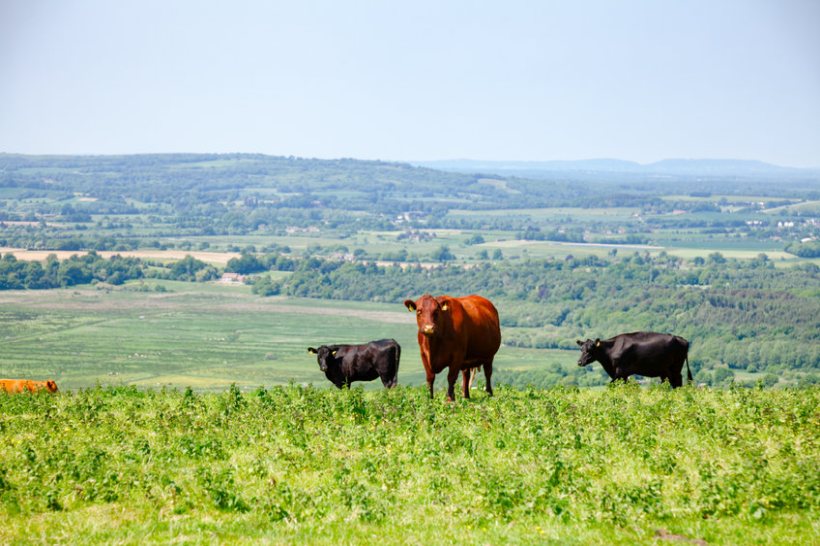
A new campaign has launched aiming to tackle myths around meat consumption while promoting British livestock production's green credentials.
The #ACutAbove campaign seeks to challenge suggestions that the public should stop eating meat to help combat the climate crisis.
Through careful land management and low-intensity farming methods, campaigners say that red meat can be produced and eaten in an environmentally-friendly and sustainable way.
Launched by the Hybu Cig Cymru (HCC), it is backed by the Countryside Alliance, Farmers' Union of Wales, the Association of Independent Meat Suppliers, Tenant Farmers Association and the National Sheep Association.
The campaign is keen to highlight the difference between sustainable red meat produced in the UK and the high-intensity and processed options seen elsewhere in the world.
For example, Wales is one of the most sustainable places to produce red meat, as it is low-intensity with grasslands used for grazing, which act as carbon stores.
Over one third of farm emissions are offset through existing on-farm carbon sinks such as grassland, hedgerows and trees, the groups explain.
And the grasslands which make up most of the Welsh agricultural land sequester twice as much carbon as croplands.
Meat campaigners say this means around 318 million kg of carbon is taken out of the atmosphere every year as a result of Welsh farming.
It produces significantly fewer greenhouse gases than other systems around the world, and relies overwhelmingly on abundant grass and rainfall rather than energy-intensive imported feed.
The vast majority (80 percent) of Welsh farmland is unsuited for uses other than raising livestock, the industry groups explain.
And Welsh beef’s carbon footprint - which is 11-16kg of CO2 per kg - is less than half compared to global average figures (37kg CO2 per kg).
As a result of this, the campaign urges the government to not 'offshore' the UK's emissions, and to instead support livestock production in the UK.
This would avoid consumer demand for red meat being met by additional imports, which the groups say would drive up global emissions by sourcing from countries with less sustainable farming practices.
The campaign comes ahead of the publication of the government’s long-awaited white paper response to Henry Dimbleby’s National Food Strategy, and follows the IPPC report setting out the scale of the climate crisis.
Gwyn Howells, chief executive of Hybu Cig Cymru, said it doesn’t have to be a choice between eating meat or protecting the planet.
"The fact is, buying locally made, high quality meat is healthy for us and the environment," he explained.
"That’s why in this campaign we are celebrating how British red meat is some of the world’s most sustainable with some of the lowest carbon footprint.
"Whilst intensive farming systems are part of the problem with the climate crisis, the answer is not to stop eating red meat, but to produce and eat it more sustainably and ethically."
